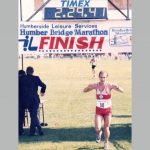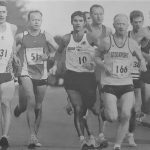Training Philosophy
1.
Training should be tailored to the requirements of your target event, current fitness, individual physiology and response to the training stimulus. However for endurance running events the main focus should be on achieving the best possible aerobic base within the training time available.
2.
Take time to progressively build up your training load. Patience, consistency and listening to your body are key to long-term success. Plan rest and recovery into training otherwise you’ll have to take them when they are not planned.
3.
Most injuries and illnesses clear up faster if you catch them early enough and rest for a few days. If you have any doubt as to what the problem is it is always best to seek experienced professional advice as soon as possible rather than rely on an internet based diagnosis.
4.
Most training to improve aerobic endurance should be at an intensity that enables you to maximise the time spent doing it, but which also requires your normal running style to perform. Running steady runs too slow may have a negative impact on your running economy, and too fast may fatigue or even injure you for no additional benefit.
5.
If a race or workout is very intensive there should normally be a gap of at least 72 hours before the next hard workout or race to maximise the benefit. Too much hard training with insufficient recovery is the biggest cause of over-training.
6.
Practice good running form on every run and workout to improve your running economy at all paces. Learning how to run efficiently and smoothly will allow you to go further and/or run faster for the same energy requirement, and reduce the incidence of over-use injuries better than most strength work.
7.
Specific training practice in the environment i.e running surface, terrain and climate, and at the distances and paces you are going to race at is critical to performing at your best on race day.
8.
Set achievable race goals and training targets at each stage of your development and make sure you know the purpose of all runs and workouts. Avoid unnecessary complexity in workouts to enable easier monitoring, measurement and analysis.
9.
Repeat similar training runs and workouts frequently so that you learn how to judge the effort correctly for that type of run or workout and know whether the training is helping you improve or not.
10.
Try not to go more than a few weeks between low key races, or a few months between major races. Pre-race preparation and race execution are as important as any other aspect of training and need regular practice.
11.
Even if it is not a goal race treat every race seriously and do your best on the day. And always taper for major races.
12.
Keep a detailed training diary because knowing exactly what you did before is essential if you want to repeat a success, and if was a failure you want to avoid the same mistakes again.
13.
Human beings evolved as natural endurance runners and just running training can produce amazing results. But although you don’t need supplemental coaching, special dietary advice, extra strength and conditioning or other technological aids to run fast or a long way, you will need them to run your absolute best.
14.
Focus on your objective but don’t forget to enjoy your running and maintain a balance with the rest of your life. Running is highly addictive and to get the best out of yourself you are going to have to devote a lot of time and effort to training, but maintaining good physical and mental health and relationships always outweighs all other aspects of a training programme.






